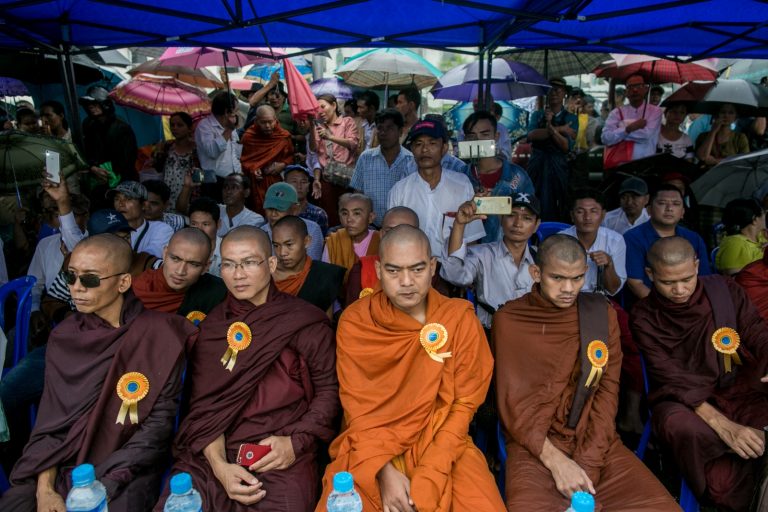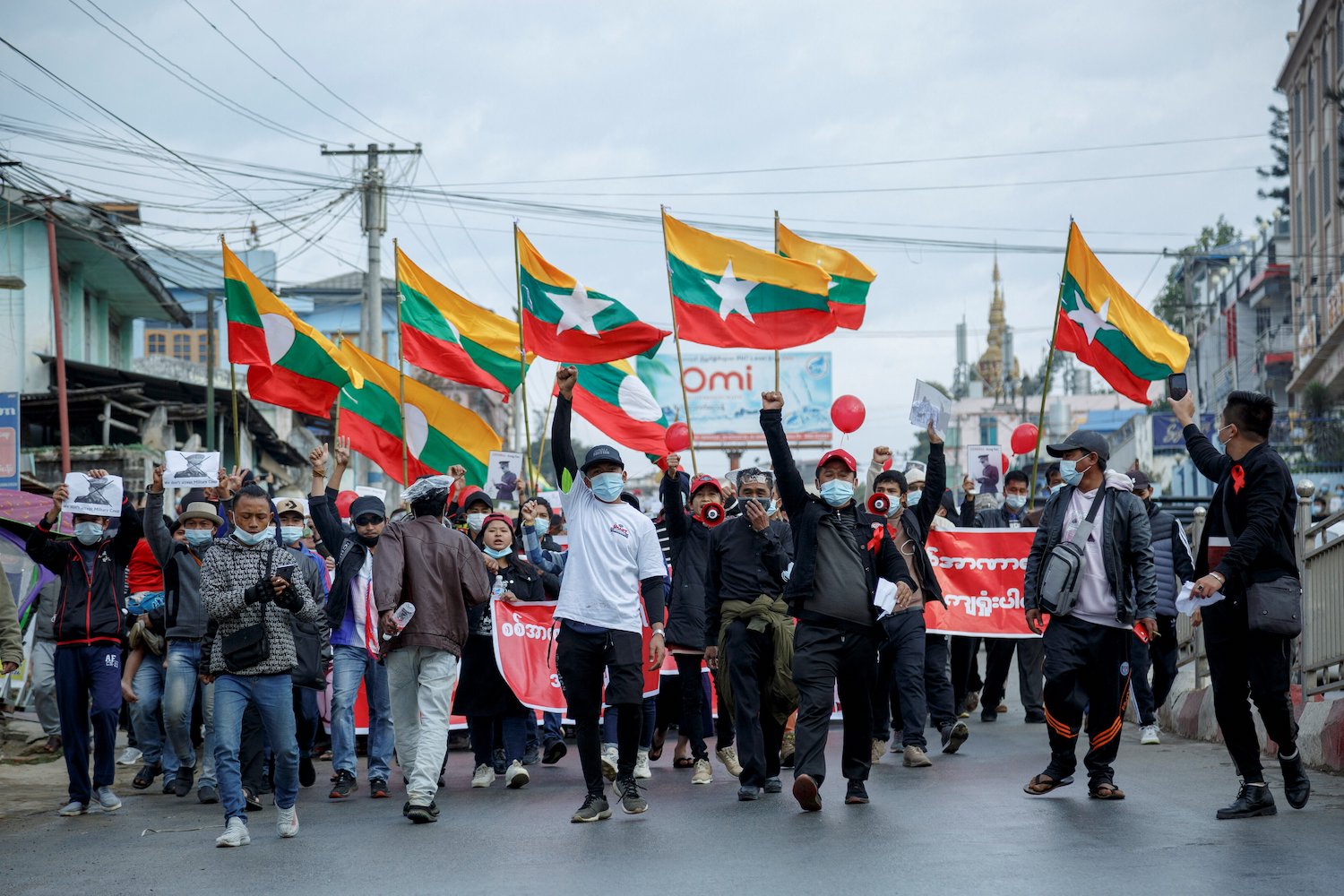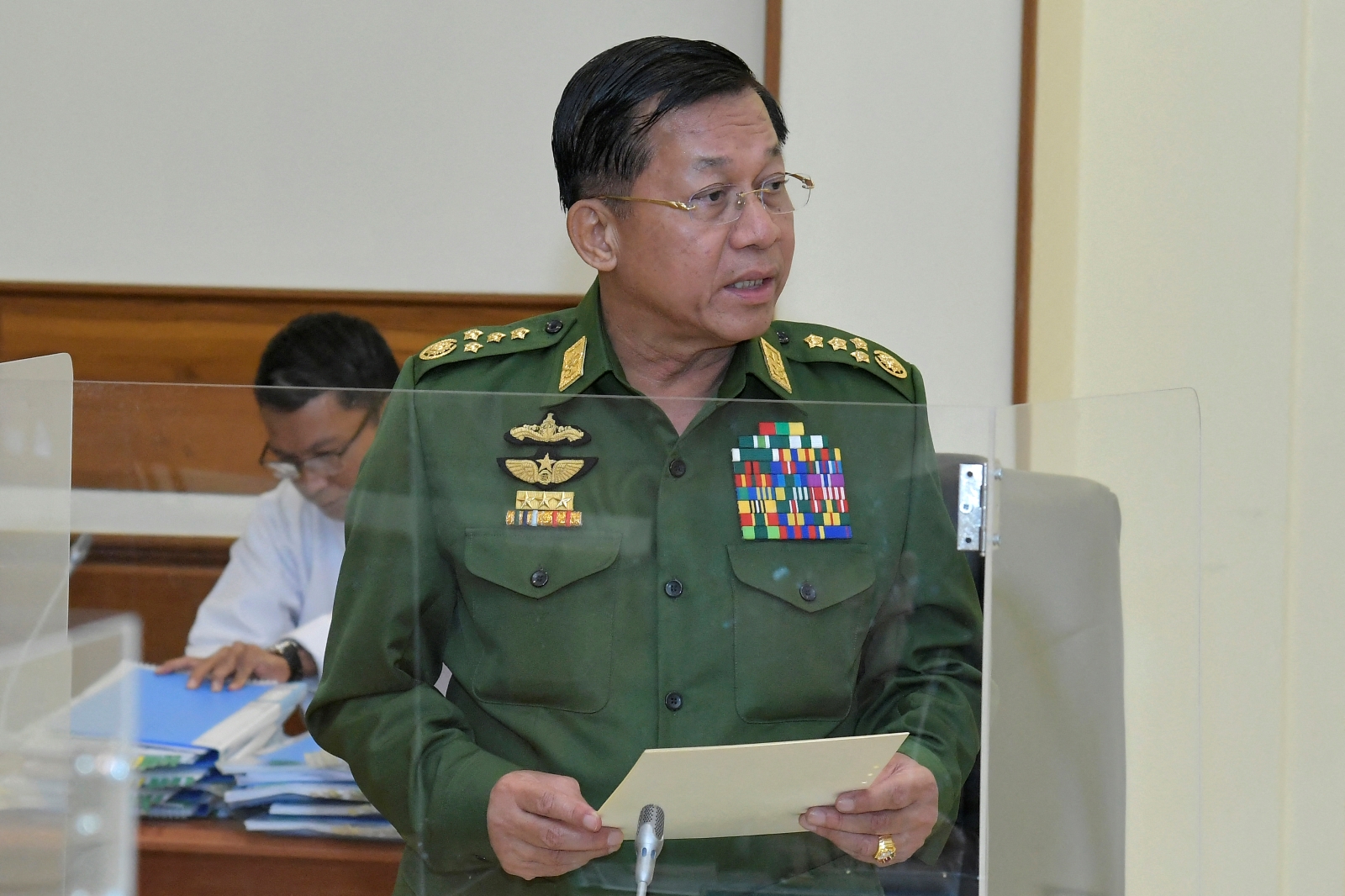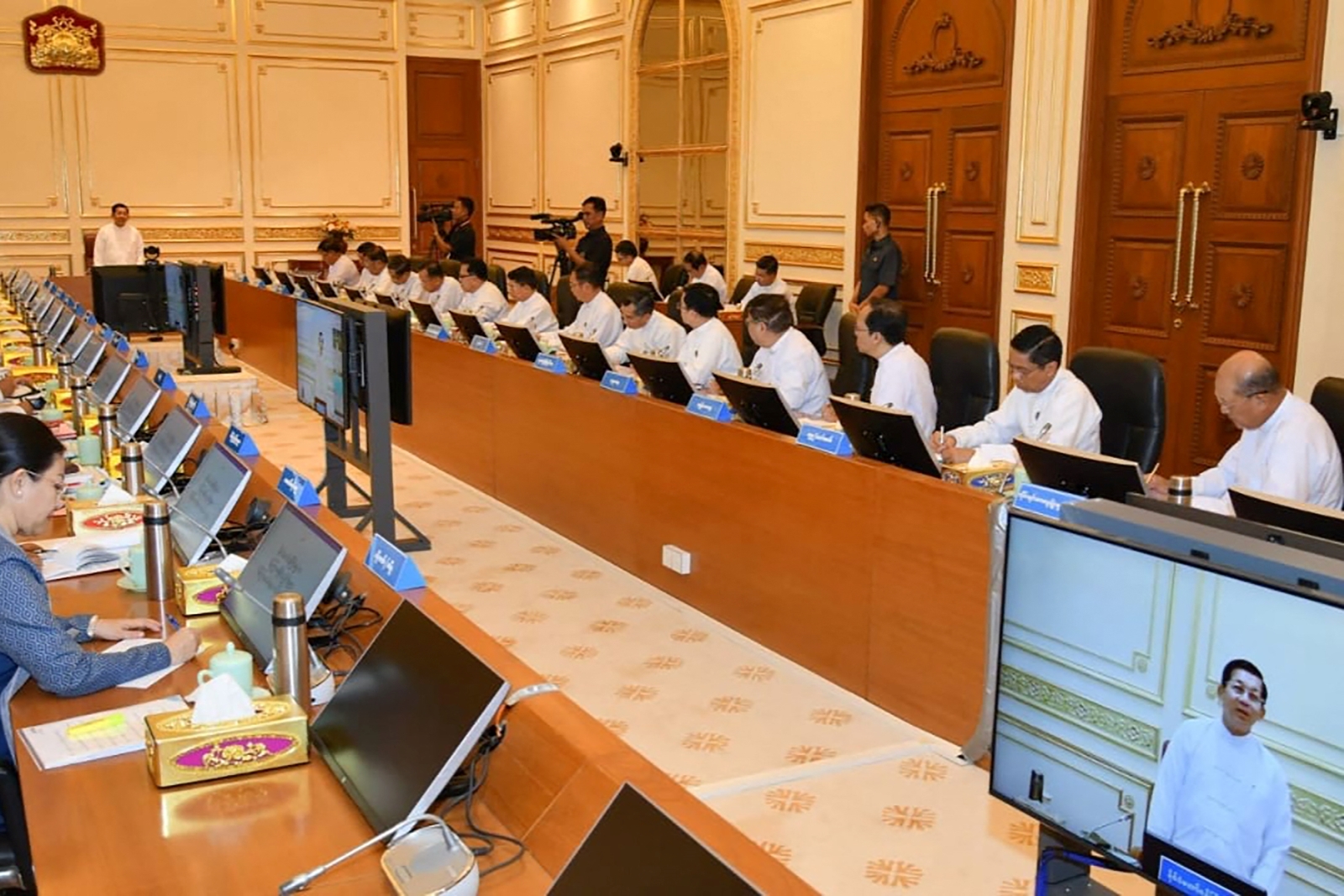It was headline news when the leader of the National League for Democracy called for reconciliation after the November 8 election. A similar call after the 2010 poll did not get past the censors.
Daw Aung San Suu Kyi and the huge victory of her National League for Democracy have been the big story in the nation’s newspapers since the November 8 election. It was a different story in 2010 after her release from house arrest a few days after the nobbled election won by the Union Solidarity and Development Party.
The NLD leader had figured prominently in the Myanmar Times edition for the week beginning on November 22, 2010. That was before the edition was sent for pre-publication scrutiny by the censors. The red pen went wild.
All three reports about Daw Aung San Suu Kyi were rejected for publication. They included the front-page lead, based on an interview with the NLD leader on November 15, two days after she was released from house arrest.
Last week, Daw Aung San Suu Kyi called for talks with President U Thein Sein, House Speaker Thura U Shwe Mann and Tatmadaw Commander-in-Chief Senior General Min Aung Hlaing to discuss national reconciliation.
The indefatigable NLD leader made the call from a position of strength, as the leader of the party with the most seats in parliament.
Support more independent journalism like this. Sign up to be a Frontier member.
In the November 15, 2010 interview, Daw Aung San Suu Kyi issued a call for reconciliation. It was directed at the parties that contested an election her party had chosen to boycott.
The NLD, she said, was open to cooperate with other political parties.
“If we have good reasons for working together and if we believe that we can work together to promote democracy and to help the lot of the people then of course we are ready to cooperate,” she said.
The lead story was accompanied by a half-page image of Daw Aung San Suu Kyi visiting an HIV clinic and shelter in Yangon’s South Dagon Township run by NLD supporters. The image got the red pen treatment and the authorities responded to the visit by ordering the closure of the shelter and the eviction of its 82 patients.
The censors also took offence at the question-and-answer interview on which the lead was based and a report about Daw Aung San Suu Kyi’s visit to NLD headquarters the day after her release. (The front-page lead was replaced by a report headlined, ‘Analysts anticipate slow but steady economic reform’).
Also rejected were two reports that mentioned the NLD leader. One was columnist Roger Mitton’s musings about the decision to award the 2010 Nobel Peace Prize to the Chinese dissident, Liu Xiaobo.
The other was a feature story headlined, ‘Despite result, hope for change remains’. Among those cited in the report was political analyst Maung Suu Sann, who had said ahead of the 2010 election that it would be a turning point for Myanmar politics.
“Because of this election, the country can begin to move away from the status quo of military governance towards parliamentary rule,” he said.
The report also included comments at a news conference the previous month by USDP general secretary U Htay Oo at which he said the party wanted to repair relations with Daw Aung San Suu Kyi and the NLD.
“We want to cooperate [with the NLD and Daw Aung San Suu Kyi] for the betterment of our country,” U Htay Oo said.
Not all the edition’s rejected reports were about politics. One was about filling stations re-introducing rationing after the supply of government-subsidised fuel was cut by 30 percent the week after the election.
Another was about a group of 30 Yangon-based bloggers travelling to Bago to donate books and stationary to needy children studying at a monastery.
The excitement over the release of the NLD leader inspired eight Myanmar-language journals to dare to defy censorship regulations. They published special supplements featuring images of Daw Aung San Suu Kyi greeting rapturous crowds outside her University Avenue residence on the day of her release and at NLD headquarters the next day.
The supplements were not submitted for pre-publication censorship and the journals were penalised by being suspended for between one and two weeks.






